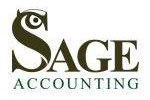HMRC scrutinising directors’ loans
HMRC has begun a new compliance campaign targeting company directors who owed their companies money. What’s the full story, and how should you respond?

Warning letter
HMRC says that it will shortly write to all directors that it has identified as having had one or more loans from their companies which were written off or released (waived) between April 2019 and April 2023. You’ll receive a letter if you didn’t report the details on your self-assessment tax return or notify HMRC by other means. The likelihood is that you’ll have further income tax to pay.
Taxable income
When a company writes off or waives a debt owed to it by an employee, director or shareholder it counts as taxable income. The write-off or release of a debt might be taxable as earnings or, in the case of a director who’s also a shareholder, as a distribution which is taxed in the same way and at the same tax rates as a dividend.
The tax payable is lower for a written off or waived debt taxed as a distribution compared to the tax as earnings. Which of these applies depends on whether the debt arose by reason of your employment or because you’re a shareholder.
If the debt arose by reason of employment, the company should have reported it and accounted for Class 1 NI. If it hasn’t your company might also be in hot water with HMRC.
Action required
If you’re already aware that you have overlooked reporting a written off or waived debt to HMRC, or become aware because you receive a letter from HMRC, you should report it in one of two ways. If the write-off/waiver occurred after 5 April 2023, amend your 2023/24 self-assessment tax return or, if it occurred earlier (or if it relates to 2023/24 but you didn’t complete a tax return for that year), use HMRC’s online disclosure service. Volunteering the information rather than waiting for HMRC to pressure you can reduce any financial penalty it might charge.
Related Topics
-
Get ready for Making Tax Digital for Income Tax
If you’re one of the (un)lucky individuals who need to join Making Tax Digital for Income Tax (MTD IT) from 6 April 2026, you probably know that this involves submitting regular, digital records to HMRC. But what do you need to do to prepare?
-
CT61
-
Repayment thresholds for student finance confirmed
Repaying student finance can seem complicated, with a number of different plan types each having different repayment thresholds. The thresholds for the forthcoming year have just been confirmed. What’s the full story?

 This website uses both its own and third-party cookies to analyze our services and navigation on our website in order to improve its contents (analytical purposes: measure visits and sources of web traffic). The legal basis is the consent of the user, except in the case of basic cookies, which are essential to navigate this website.
This website uses both its own and third-party cookies to analyze our services and navigation on our website in order to improve its contents (analytical purposes: measure visits and sources of web traffic). The legal basis is the consent of the user, except in the case of basic cookies, which are essential to navigate this website.